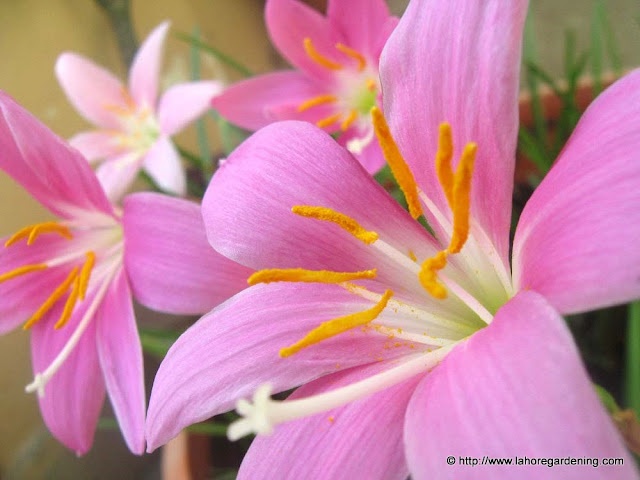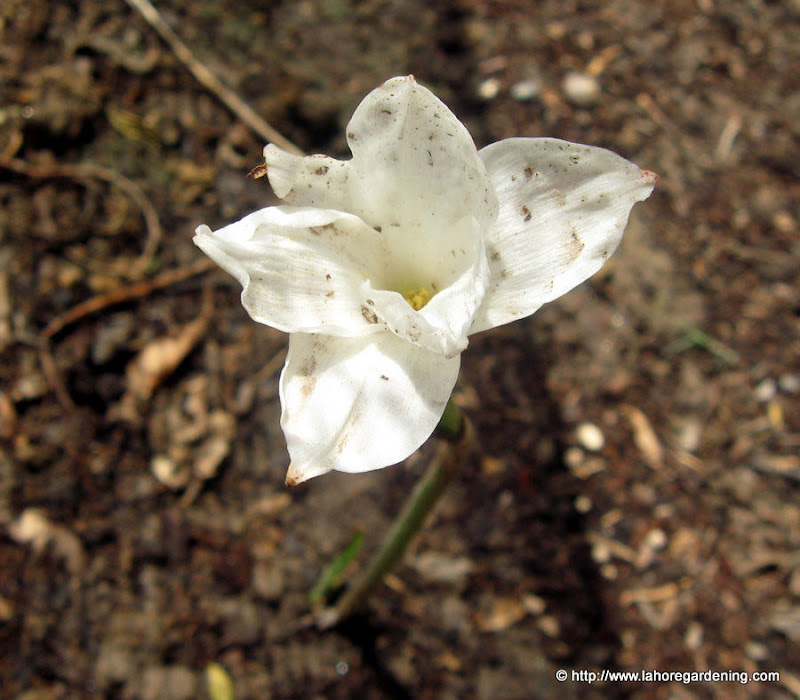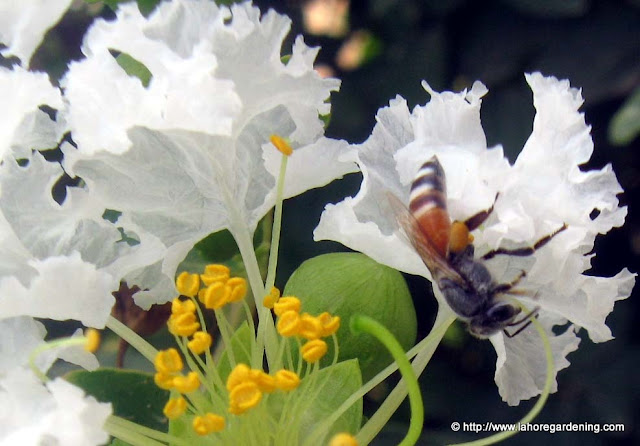This is 6th article in this series of growing warm climate bulbs. zephyranthes lily with synonyms rain lily, fairy lily, zephyr lily are very tough plants yet very aasy to flower warm climate bulbs. Not a true lily though,they are from amaryllis familly. Their flowering period is not confined, although they bloom after rains hence called rain lily. In my zone 10b, these bloom almost yer round but heavy blooming is in monsoon rains.Its local name is gul-e-nargis.
This is how the bulbs of pink rain lily looks like. It has the largest bulb as compared to the bulbs of white and yellow rain lilies.

Now they are mostly not available as bulbs but plants. And 1 plant includes many bulbs. They are best planted in groups. Sadly the flowers last just few days.
 Growing conditions
Growing conditions
Plant them in well drained soil so that they are just under the soil. Even the tip few centimeters above the soil is fine.
Give them full sun. Although they will benefit from shade in very hot afternoons like mine of 120 F.
They like being wet and then dry
, then again wet and then dry again. This is how their blooming is triggered.
Give them some fertilizer off and on. I do not fertilize them at all and they bloom fine but this season i i will try some light fertilizer.
Winter protection
As long as temperature is over 4C they will do fine. Below that they might get damaged. Mine loose some of their leaves in winter (ours is mild around 4C) but most of foliage is retained.
Propagation
They are mostly grown from bulbs as bulbs keep producing offsets. For new varieties they are grown from seeds.
Varieties
There are 3 common species. The most common and famous is pink rain lily,
zephyranthes grandiflora. It blooms more easily and frequently as compared to other two. It has the largest flower of all species.

Then comes the white rain lily,
zephyranthes candida.

And the last one is yellow rain lily,
Zephyranthes citrina or
Zephyranthes sulphurea They are very common in lawrence gardens, self sow and pop up at odd places in summers.

There are some hybrids grown from seeds with some different colors including some bi colors but i am yet to find their seeds.
Update: Some varieties of rain lily i tried are following:
Zephyranthes labuffarosa:
 Zephyranthes drummondii
Zephyranthes drummondii:

And last but not least here is a wonderful article on rain lilies by Zahrah Nasir.
http://archives.dawn.com/archives/69398














